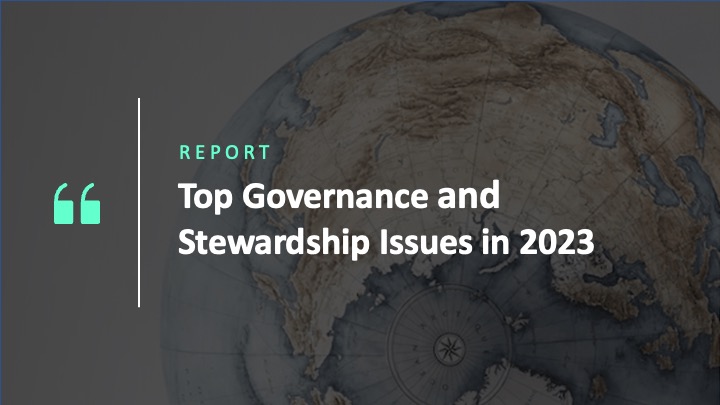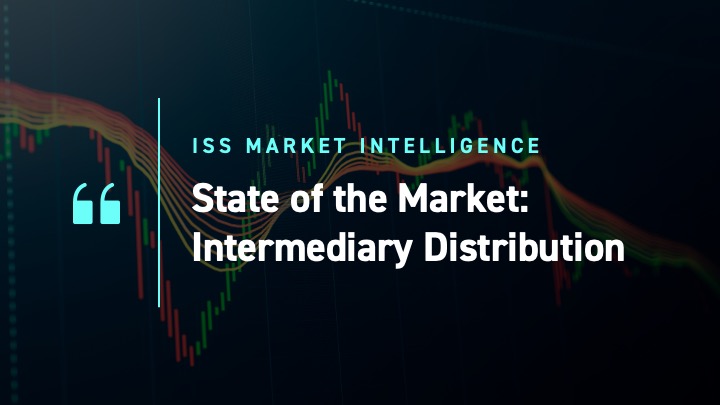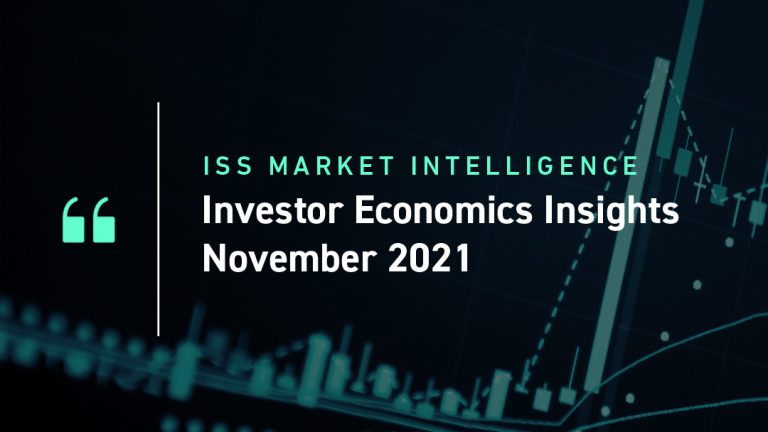Below are key takeaways from ISS’ recently released paper “Top Governance and Stewardship Issues in 2023”. The full paper is available for download from the ISS Governance online library.
- The number of proxy contests for board seats in Europe was at all-time high in 2022 and may continue in 2023, and contests are continuing to rise in the U.S. In the U.S., 2023 is still expected to be active; companies that have held shareholder votes on proxy contests so far this year had a median market cap of $628 million, in line with the full-year 2022 median and larger than the medians in 2020 and 2021. Activist investors see fertile ground for potential value creation at large-cap companies, as underscored by recent campaigns at Disney (DIS) and Salesforce (CRM). The ISS SSR Pipeline report is currently tracking 191 potential proxy contests at U.S.-listed companies and funds. Meanwhile, M&A activity is likely to be impacted by high borrowing costs, which could benefit publicly-listed strategic acquirers (which can use their shares as currency).
- Gender diversity levels in boardrooms and C-suites are registering steady increases. The long awaited European Directive on gender diversity on boards was approved by the European Parliament in November 2022 and EU listed companies are now expected by June 2026 to have either at least 40 percent of their non-executive directors or at least 33 percent of all director positions (including both executive and non-executive directors) from “members of the underrepresented sex”. In the U.S., 100 percent of the S&P 500 and over 97 percent of the Russell 3000 now have at least one female director. In Asia, there has been a steady increase in the percentage of women on boards, from 9% to 16% percent in the last five years. These trends are expected to continue in 2023.
- Reported racial and ethnic board diversity continues to improve in the U.S. Approximately 99 percent of the S&P 500 and approximately 86 percent of the Russell 3000 Index now have at least one board member disclosed as being from a minority background. This compares to 98 percent and 80 percent, respectively, as of early 2022. Additionally, nearly all industry sectors showed increased racial/ethnic board diversity year-over-year. In light of various shareholder initiatives targeting racial/ethnic equity, continued progress is expected this year as well. However, whether emerging anti-ESG efforts against racial/ethinic diversity initiatives will dampen results is still unknown.
- More U.S. companies than ever will be expected to demonstrate responsiveness to prior year low say-on-pay support, and windfall gains expected to be a theme in Europe. In the U.S., a record number of companies had failed say-on-pay proposals or proposals that received significant shareholder opposition in 2022. Many investors will be looking for these companies to demonstrate responsiveness though their shareholder engagement efforts and actions taken to address shareholder concerns. In Europe, “windfall gains” are expected to be a theme of the 2023 proxy season as pandemic-era grants begin to vest. Remuneration committees are, therefore, expected to consider whether any downward adjustment to disproportionate vesting outcomes is needed.
- Say on Climate management proposals had limited spread globally in 2022, mainly across three main markets. What will 2023 bring? Three countries accounted for most of the Say on Climate management proposals in 2022. Of the 48 resolutions tabled globally, 36 (75 percent) were put forward at European companies (16 in the UK and 12 in France) and 8 (17 percent) at Australian companies. 46 percent of the 48 companies did not make a commitment on a future vote. In Asia, markets like China, Taiwan and India are progressing in repect of climate-related regulation and policies and the adoption of global reporting standards such as the GRI, TCFD and SASB.
- Support for E&S-related shareholder proposals dipped in 2022. In the U.S., the overall vote results in 2022 showed that E&S shareholder proposals received 22.0 percent median shareholder support, down from 29.1 percent in 2021. While in 2021 there was a record number of 39 majority supported E&S-related proposals in the U.S, that figure decreased to 37 proposals in 2022, despite the fact that there were more proposals on ballot. Likely factors contributing to the decline in support were the increased number of proposals allowed on ballot that were prescriptive in nature and the geopolitical and economic situations, that continue into 2023, particularly the impact of the war in Ukraineon climate-related proposals, the pressure on energy markets, and inflation.
- 2023 is seeing a rise in so-called anti-ESG shareholder proposals in the U.S., skeptical of the concepts of corporate social responsibility. For instance, there are proposals asking a board to charter a committee to evaluate the risks associated with a company’s strategies to transition to lower-carbon products/practices, and proposals seeking a report on the “fiduciary relevance” of GHG emissions reduction goals. There are also several independent chair proposals taking aim at combined CEO/Chairs due to so-called “woke business practices” like championing racial and gender equity. Some of these anti-ESG proposals may have been influenced by increasing state legislation opposing or promoting the consideration of environmental and social factors in investing.
- The U.S. SPAC bubble continues to deflate. In the U.S., proposed regulatory action from the SEC and initial changes in tax law placed additional scrutiny on SPACs, causing many to liquidate and return funds to shareholders. And there is still the question of how many good deals remain to be discovered. While there are more than 300 SPACs still active and searching for a merger prospect, just 7 SPACs have gone public so far in 2023, compared to more than 600 in 2021 alone, indicating that this particular well might have run dry.
By: Kathy Belyeu, Andrew Borek, Enver Fitch, Stefan Georgiev, Robbert Gerritsen, Tom Inchley, Shobhit Jaju, Robert Kalb, Candice Kim, Fassil Michael, Lorenzo Montecillo, Mary Punch, Lea Ramsley, Nelson Seraci, Galen Spielman, Aditi Uttamchandani, Johanne Villacorte, Frances Wang, Heath Winter




